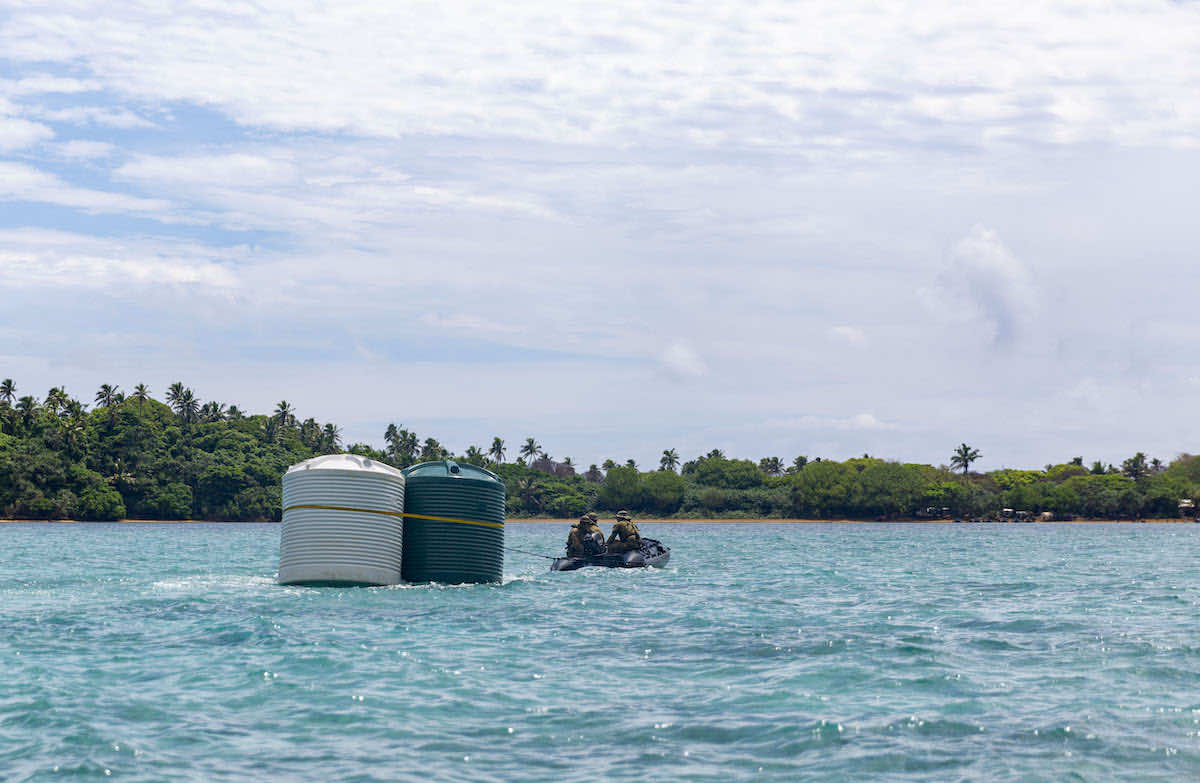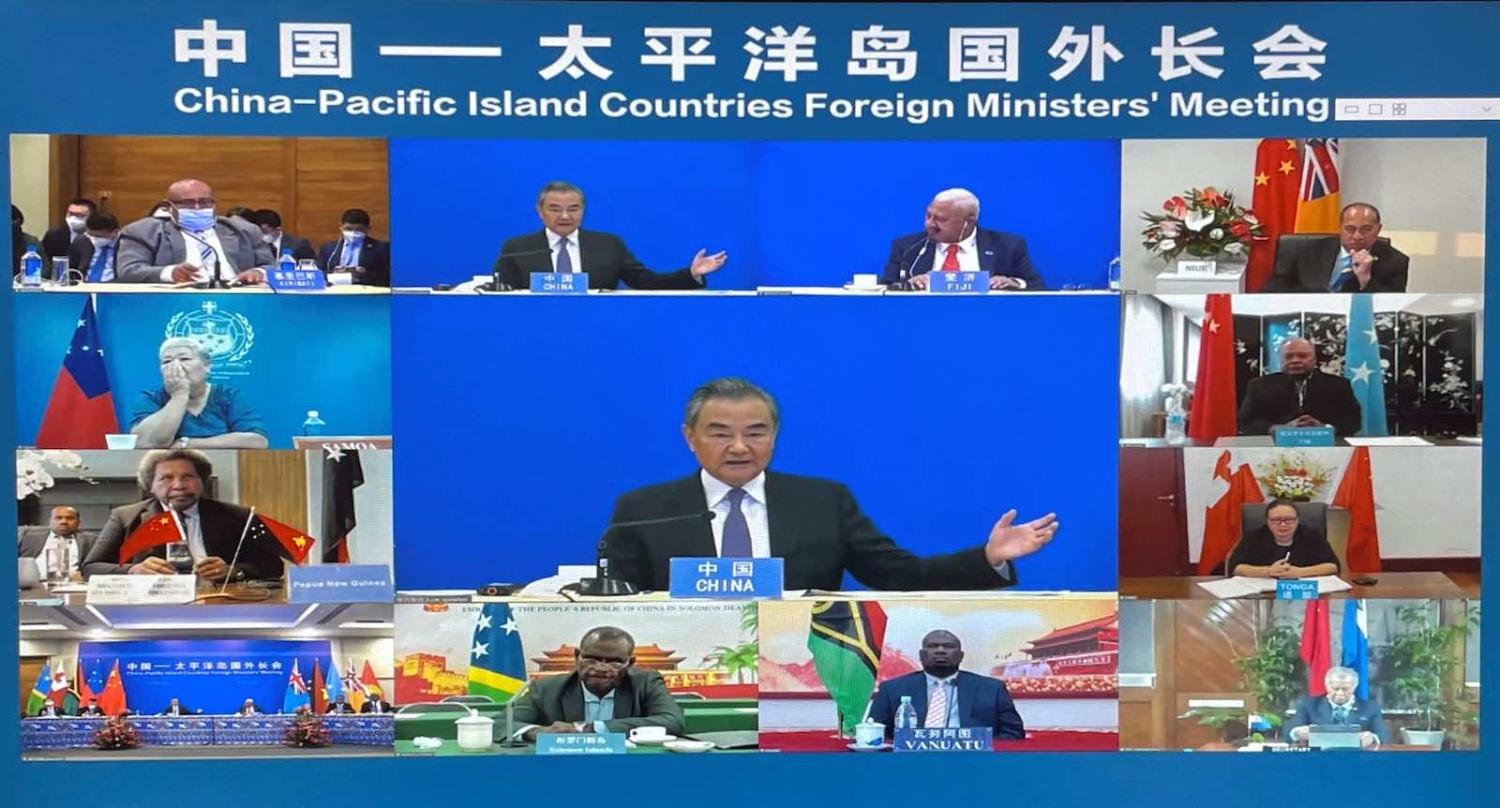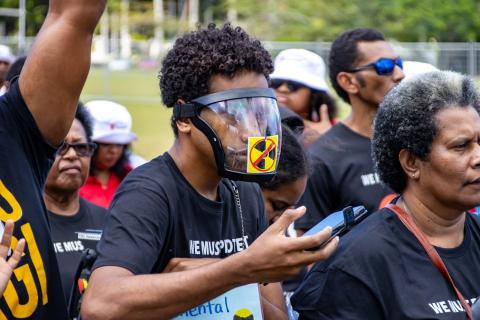Australia, Pacific Island countries, and their partners, are each considering how to respond to China’s push for a Pacific economic and security pact. Australia, for its part, should avoid temptation to match, or exceed, China’s commitments. Instead, building genuine partnerships that address different needs of Pacific Island countries is Australia’s best chance to achieve interconnected objectives. And in this, enhanced Humanitarian Assistance and Disaster Relief, or HADR as it is known, remains an underexplored opportunity.
China’s bid under its proposed “China-Pacific Island Countries Common Development Vision” and “Five-Year Action Plan (2022–26)” includes doubling the volume of bilateral trade between China and its economic partners, which could potentially circumvent other regional initiatives such as that put forward by the United States, the Indo-Pacific Economic Framework for Prosperity. China also seeks to widen its engagement with the Pacific region, via the China-Pacific Island Countries Ministerial Dialogue on Law Enforcement Capacity and Police Cooperation. China is demonstrating confidence by moving from bilateralism, for example in policing, to multilateralism.
Prioritising consensus at the 30 May meeting with Foreign Minister Wang Yi, the 10 Pacific Islands Foreign Ministers agreed to cooperate in five areas including economic recovery after the Covid-19 pandemic and new centres for agriculture and disaster.
The government should demonstrate understanding that Pacific Islands countries value many relationships, even more when partners voluntarily co-operate to benefit the region.
Outside of the meeting, the responses of the various Pacific Islands representatives reflected their diverse historical and contemporary experiences. Samoa signed a bilateral agreement with China that included funding for major infrastructure projects, and Fiji expressed desire to pursue additional bilateral arrangements. In contrast, the Presidents of the Federated States of Micronesia and Palau (who, along with three other Pacific Islands countries, has diplomatic relations with Taiwan) expressed scepticism and caution about China’s proposals.
The limits of China’s diplomatic reach may also have been exposed, as Pacific Islands countries were likely frustrated that the agreement was drafted without consultation, rather than through “quiet negotiation and deliberative discussions”. Civil society groups in Samoa, Kiribati and Solomon Islands also expressed concerns around how the proposed agreements impact press freedom, transparency and democracy.
Australia is a major foreign aid and trading partner for Pacific Islands countries, with a history that may provide diplomatic reach greater than China’s. Yet some of China’s proposed initiatives – if implemented – would conflict with existing Australian arrangements that also seek to integrate Pacific Islands countries into economic and security institutions.
Hence, China’s proposal has been described as a “direct challenge”, which Australian Prime Minister Anthony Albanese argues demands a response. Foreign Minister Penny Wong’s desire to build a stronger Pacific Family has been welcome by Fiji, and Wong has committed to bring “more resources” to the region.
Australia should not compete with China’s resources in a zero-sum game because it would backfire. Australia and Pacific Islands countries should not share security priorities because the relative weighting will be different. Pacific Islands countries emphasise security threats including climate change or illegal fishing. As Fiji’s Prime Minister Frank Bainimarama argued, “Geopolitical point-scoring means less than little to anyone whose community is slipping beneath the rising seas”. Pacific Islands countries have expressed a determination not to be “dragged” into a geostrategic competition.
By eyeing the Pacific as a competitive backyard, or by emphasising the prospect of Chinese financed dual-use infrastructure ports or fishing fleets for grey zone activity, Australia would only undermine how successfully its policies respond to interests of different Pacific Islands countries – and would overlook that Pacific Islands countries are not “passive dupes” and can leverage Australia-China geopolitics to their advantage.
Australia should instead take deliberate steps to understand, and act on the security priorities of Pacific Islands countries in ways that achieve true partnership. Equally, Australia should actively promote Pacific regionalism, cohesion, co-operation, and solidarity.
This can be achieved by enhancing HADR.

Australia could support Fiji’s Blackrock Peacekeeping and Humanitarian Assistance and Disaster Relief Camp to host simulated regional disaster exercises. With the consensus of Pacific Islands countries, all relevant humanitarian, military, and police actors could participate – trilateral co-operation between Australia, the United States and China is not impossible. A working group could procure resources that meet the unique requirements of Pacific Islands countries and develop coordination guidelines, and such dialogue could rebuild cohesion. Enhanced HADR can accommodate the proposed China-Pacific agreement on disaster management. If the proposal isn’t implemented, Australia could empower the first, Pacific-led coordination centre for HADR.
In HADR, there is an important opportunity for Australia to demonstrate a new commitment to a Pacific-first strategy. Current Pacific-led initiatives, such as the Melanesian Spearhead Group proposal for a Humanitarian and Emergency Response Coordination Centre, remain unrealised. Opportunities for locally-led disaster response are also side-lined. Australia instead pursues regional HADR initiatives through the South Pacific Defence Ministers Meeting that includes few Pacific Islands countries as partners.
The Albanese government must avoid making a damaging impression that Australia’s HADR initiatives are largely motivated by the concern to mitigate foreign influence – as former prime minister Scott Morrison did with suggestions that Australia’s Covid-19 vaccine diplomacy blocked “incursion into our region”. Instead, the government should demonstrate understanding that Pacific Islands countries value many relationships, even more when partners voluntarily co-operate to benefit the region, as in HADR.
In a promising sign, Wong has been quick to recognise that “our security and prosperity is truly a thing we achieve together, or not at all”. Australia needs to resolve listen to Pacific Islands countries, respect and support those that do reach agreements with China, offer compelling alternatives for others, while delivering programs that set Australia apart. These steps build trust and solidarity. HADR provides this pathway. With careful diplomacy, Australia and Pacific Islands countries can absolutely gain.


